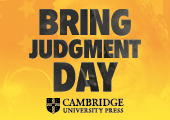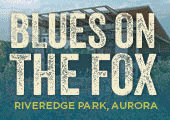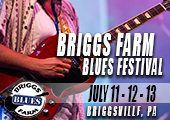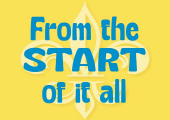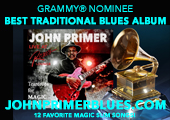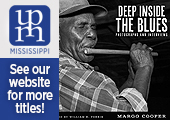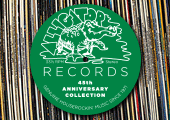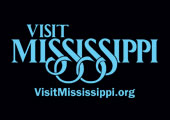LURRIE BELL & THE BELL DYNASTY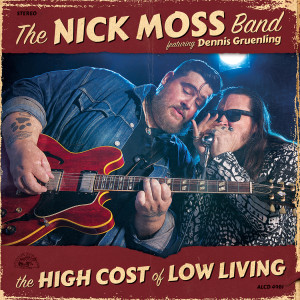
Tribute to Carey Bell
Delmark – DE855
The late harmonica maestro Carey Bell’s trademark riffs and licks have been widely adopted by his admirers and acolytes, which might seem like “tribute” enough. But now his sons, all of whom have been playing since childhood (they once formed a band called the Ding Dongs—“Bell,” get it?), have gathered together to pay him tribute.
The set list is divided among classics and little-known gems from the likes of Muddy, Little Walter, Junior Wells, Big Walter and Carey himself, with a few originals thrown in. Harpist Steve Bell takes front center immediately; often sounding very much like his father, he squalls, swoops, wails and warbles with elan, sounding both emotionally transported and unerringly precise. The expected Carey quotes are here, but it’s obvious that Steve didn’t embark on this project to be a clone. He mixes and melds influences—Carey, of course, but also both Walters and Sonny Boy Williamson / James Cotton—into a style that’s clearly and refreshingly his own. Guitarist Lurrie picks with his characteristic fiery acuity, and his vocals, corrugated as they may be, are tuneful and, on a song like Big Walter’s Hard Hearted Woman (“You must have been mistreated / to have evil resting on your mind”) disarmingly tender.
Tyson Bell’s bass work is unobtrusive but unfailingly solid (Carey also played bass, and it’s clear he taught Tyson well). Drummer James Bell, meanwhile, shuffles and boogies as if to the manor born, and he unfurls some astonishingly powerful vocals on several of these outings (including his own Keep Your Eyes on the Prize, which also reveals him to be a songwriter of surpassing—if somewhat frightening—eloquence).
Guest guitarist Eddie Taylor Jr. digs into the groove so flawlessly it’s sometimes difficult to tell him and Lurrie apart (Eddie’s tone is a bit more pristine, but no less hard-hitting). Pianist Sumito “Ariyo” Ariyoshi, as usual, plays with flawless technical dexterity and seemingly bottomless emotional commitment. Musselwhite (on Little Walter’s I Got to Go) squalls like a hawk and warbles like a whiskey-addled dove. Billy Branch hews a bit closer to Carey’s sound (especially his chromatic work on Carey’s So Hard to Leave You Alone); but as usual, his own personality shines through with declamatory force—and his head-to-head duet (duel?) with Steve on Carey Bell Was a Friend of Mine sounds like an outtake from a vintage-era head-cutting contest.
The best tributes don’t just invoke the spirit of the departed; they make it come alive within us—that’s exactly what happens throughout this masterful set.
—David Whiteis
JAMELL RICHARDSON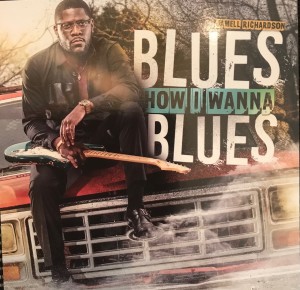
Blues How I Wanna Blues
JRL Entertainment – No #
Jamell Richardson (featured in this issue’s Breaking Out column) hails from southern Alabama, where he began to sing and play guitar in the church where his grandmother was pastor and began to play professionally in gospel groups in and around Mobile. He began to make a name for himself on the soul blues scene backing Mel Waiters for three years before the singer’s untimely death in 2015, and got his big break when he was cast to play guitarist Jimmy Nolen in the 2014 James Brown biopic, Get On Up.
Richardson issued his first recordings under his own name on the 2014 EP Gulf Coast Blues Boy, which featured seven tracks including several straight-ahead blues. This time out, the all-original playlist is expanded to ten songs, beginning with the autobiographical title track that also serves to introduce us to Richardson’s gospel-infused vocals and heavy guitar sound. When I Squeeze Her is a love song to his guitar that finds Richardson exploring his falsetto range, and O’Why is a lush bedroom ballad. A tougher sound returns on Jus’ Be Yo’self with its echoes of James Brown, before another sweet ballad titled I Found You (Wedding Collection) bridges the way to the surging rhythm of Sarah Pearl (his mother) and the swamp rock sound of Overdrive. Hero returns us to the sweeter side, Party When the Sun Goes Down provides the obligatory dance floor workout, and the set closes with the reggae-inflected It’s Alright to Smile. In addition to his vocals and guitar, Richardson provides most of the bass parts, while Kelvin McMorris contributes the drums, keyboards, horns and strings.
At age 29, Richardson shows a world of promise and proves here that he’s no one-trick pony. You can add his to the short list of new names to watch.
—Jim DeKoster
ROBERT LEE COLEMAN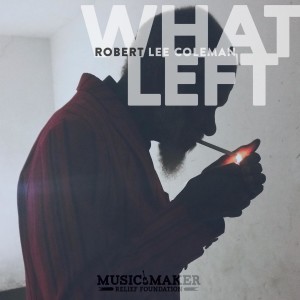
What Left
Music Maker – MMCD 193
Singer/guitarist Robert Lee Coleman, a native of Macon, Georgia, came of age during the years when his hometown was a blues and R&B hotbed; he eventually landed gigs with the likes of Percy Sledge and James Brown (that’s his funk-chopping guitar work on JB’s 1971 classic, Hot Pants). Tim Duffy’s Music Maker Relief Foundation has helped him revitalize his career in recent years; this appears to be his second full-length album release under his own name.
Fronting a brawny, horn-driven ensemble, Coleman shows himself to still be an accomplished funkmeister on his version of Johnny “Guitar” Watson’s A Real Mother for Ya; aside from that, he confines himself primarily to straight-ahead blues (aiming, no doubt, to connect with his new, primarily white listenership). As a blues guitarist he’s lithe and imaginative, even if he doesn’t really blaze any new trails. His vocals, though, can be problematic—to put it bluntly, he’s 73 years old and sounds it.
His singing sounds best at its most unforced. On the wry Shoe Is on the Other Foot (ostensibly an original composition—why do we have no songwriter’s credits?), he summons echoes of Percy Mayfield. The slow blues Set You Free finds him conveying the grizzled tenderness of a blues-toughened Lothario, and the [uncredited] harp solo, with its deep bends and sweet-toned warbles, is a delight. On the other hand, the country-flavored ballad Done Forgot About Love sounds as if it should have been tailor-made for Coleman, but he seems unable to sustain the extended lines without going hoarse; Shana Hargrove’s mellifluous guest vocals only accentuate his shortcomings on this number. The set’s closer, a two-song medley (the country standard Tennessee Whiskey and Etta James’ I’d Rather Go Blind) is fully given over to Hargrove and Laverne Smith, as Coleman chords moodily behind them.
—David Whiteis
WALTER “WOLFMAN” WASHINGTON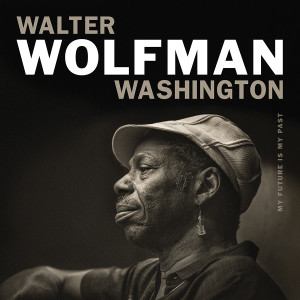
My Future Is My Past
ANTI- – 87595-1
Over the last five decades, Walter “Wolfman” Washington has served as a sideman for singers such as Irma Thomas, Lee Dorsey and Johnny Adams, and later fronted his own ensembles, including Solar System and his longtime band the Roadmasters. Yet, the venerable New Orleans guitarist and vocalist has never recorded an album as a solo artist. His latest release rectifies that. On My Future Is My Past, his first outing for ANTI-, the spotlight is squarely on Washington, and the result is a stunning, long-overdue achievement.
Producer Ben Ellman gathered some equally world-class musicians to play behind him, including keyboardists Jon Cleary, Ivan Neville and David Torkanowsky, bassist James Singleton and drummer Stanton Moore. The minimal backing adds to the intimate atmosphere, capturing the feel of seeing Washington in a small New Orleans club (see LB #225). The care and attention he pays to his singing and playing is evident throughout. Two songs, Lost Mind and Save Your Love for Me, feature just Washington and his guitar, and his deep, silken croon and gentle fretwork entwine exquisitely. His forte has always been blues, soul and funk, and that shines through on songs like I Don’t Want to Be a Lone Ranger, aided by Cleary’s buoyant B3. But on other tracks, such as What a Diff’rence a Day Makes, Steal Away and I Just Dropped By to Say Hello, Washington reveals that he’s got jazz chops—both vocal and instrumental—to spare as well.
The album’s highlight is Even Now, his duet with Irma Thomas, and it’s so jaw-droppingly gorgeous that it’s hard to believe this is the first one they’ve ever recorded. But the simpatico rhythm, musical chemistry and smoldering, tempered heat they generate is testament not only to their peerless skills, but to the history they share—stretching back to the 1960s, when Washington put together Thomas’ first band.
As David Kunian succinctly sums up in the liner notes, “[My Future Is My Past] is the record that we have all known he has in him.” It may well be the finest of Washington’s long, storied career.
—Melanie Young
LUKE WINSLOW-KING
Blue Mesa
Bloodshot Records – BS 262
The title of Luke Winslow-King’s new album captures perfectly the panoramic character of the music it contains. Looking out over the edges of life, death, failure, hope and love, Winslow-King soulfully explores a wide range of musical terrain from rock and jazz to country, soul and blues. His gruff vocals turn tender on the ballads, but he growls the blues on the funky blues-rock tunes. His vocals, though, ride the wave of his commanding guitar work, with its always-on-the-note clarity and with rhythms that alternate between funky soul and straight-ahead rock.
The album’s opening song, You Got Mine, kicks off with a rousing shot of a snare drum before sliding into a slow, Muscle Shoals soul–inflected groove; the crisp phrasing of Winslow-King’s guitar riffs, layered over soulful and rocking down strums recalls the poignant regret of Lynyrd Skynyrd’s Tuesday’s Gone, and the twinkling rhythm guitars recall the radiant beauty of early Van Morrison. Chicken Dinner takes its title from a familiar southern schoolyard chorus of victory—“winner, winner, chicken dinner”—and uses it to describe victory in love. The song strolls out with a rockabilly vibe that recalls Sea Cruise, right down to the opening lines of the first verse that begin with “ooo-eee, baby.” The chicken-picked guitars on the bridge joyously celebrate the sweetness of the tasty triumph of love. Born to Roam charges off with a propulsive rock beat, roving along the highways and byways of rock ’n’ roll with no regrets. It’s a can’t-sit-still tune propelled by Winslow-King’s searing lead licks. Better for Knowing You is a slow-burning jazz blues that takes its structure from Dan Penn’s Out of Left Field. Break Down the Walls shimmers with a gospel groove; the slide guitars weave around the heavenly chorus as the singers urge us to “be wise as a viper and pure as a dove / If you want to break down the walls holding you / You’ve got to give up all your hate and do it just for love / If you want to break down the walls holding you.” Farewell Blues is a fitting close to the album, with a Ry Cooder–like slide guitar weaving under and around a Papa John Creach–like fiddle; it’s a lively little reel that belies the loss the singer feels.
There’s raw beauty in every song on Blue Mesa; on this album, Winslow-King powerfully captures the jagged joys and ragged sorrows of life, wrapping them in tunes whose very notes mirror the bending ache of regret or the shouting exultations of joy.
—Henry L. Carrigan Jr.
O.B. BUCHANA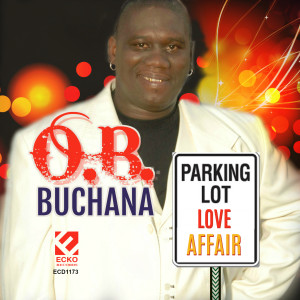
Parking Lot Love Affair
Ecko – ECD-1173
After all these years, Ecko’s synth-heavy production has added enough layers of textured complexity and expanded its range to almost make us forget how artificial it sounds, and out in front, O.B. Buchana’s grainy baritone manages to sound aggressively sexy and vulnerable at the same time, even on good-time workouts like the herky-jerky, single-chord I Wanna Get With You, which both opens this set and sets the tone for most of what’s to follow (subsequent titles like Teach Me How to Swing, Jam on With Me, Keep on Rollin’ (“You kiss my dog and I’ll kiss your cat”) and Get On Up should be self-explanatory). Even when he’s lamenting the end of a love affair, Buchana can’t seem to resist spicing things up with playful double-entendre irony (Goody Goody Good Stuff). Las Vegas Mississippi celebrates the Magnolia State’s all-night casino and party scene; the title tune, although set to a swaying ballad cadence, is a playfully ribald tale of a spur-of-the-moment erotic assignation in the backseat of a Cadillac behind a grocery store.
Throughout this set, various subtle musical and rhythmic fillips help redeem even the most predictable offerings from cliché. Although producer/guitarist John Ward is the only actual instrumentalist credited, the bass on most of these songs sounds natural and funky (especially on the aforementioned Teach Me How to Swing); Keep on Rollin’ is propelled by a jaunty, neo-reggae bounce; a gospel quartet–like vocal backing brings both musical and emotional substance to I Wanna Get With You. Buchana’s husky-voiced spoken intros and lascivious chuckles variously invoke Bobby Rush and Clarence Carter at their randiest, and when he settles into his croon it sometimes sounds as if he’s summoning the spirit of Otis Redding.
Nonetheless, it’s nothin’ but a party these days in southern soulsville, and O.B. Buchana is your host—hope the beer is cold.
—David Whiteis
THE LUCKY LOSERS
Blind Spot
Dirty Cat Records – DCR 1507
While the Bay Area duo of singer/harmonica player Phil Berkowitz and singer Cathy Lemons, only formed the Lucky Losers in 2014, they’ve already built a loyal following thanks to their seamless melding of blues, soul and Americana styles, coupled with introspective songwriting.
Berkowitz has earned renown as one of the West Coast’s most distinctive harp players, as well as for his sharp, resonant tenor. Lemons is a recovering addict who blogs freely about her pervious life on the other side of the tracks. She began singing in bars around her Dallas home back in the ’80s, occasionally sharing the stage with the likes of Stevie Ray Vaughan and Anson Funderburgh. After moving to San Francisco in the late ’80s, she caught the eye of John Lee Hooker and she soon became the opening singer for his Coast to Coast Blues Band.
Blind Spot, the band’s third studio release, finds Berkowitz and Lemons backed by Ian Lamson (guitar), Chris Burns (keys), Endre Tarczy (bass) and Robi Bean (drums), with guest appearances by several musicians, including Kid Andersen (guitar), who also produced the disc with Lemons and Berkowitz. Along with songwriting partner Danny Caron, Lemons and Berkowitz wrote all 11 songs on the CD and bring a real world approach to songs that touch on common themes of perseverance, lost love, redemption, survival and staying strong in the face of struggle.
Berkowitz takes the lead on the up-tempo shuffle of the opener, It’s Never Too Early, which features a swinging piano solo by Burns. Lemons, whose voice can range from sweet to gritty, and carries a hint of Austin’s Lou Ann Barton, takes the lead on the swaggering Take the Long Road, an autobiographical tune that retells some of her past struggles—“Nobody gave me nothin’ / that’s a fact.”
Alligator Baptism plays out over a funky groove punctuated with stinging horns, with Berkowitz on vocals and blowing a mean freight train harp before shifting to an upper register wail. Lemons and Berkowitz share lead vocals on Make a Right Turn, a song that touches on a host of modern day travails, including the ills of social media, while allowing the band to explore its Americana/swing influences. It features some sweet fiddle played by guest Annie Staninec.
With Lemons’ voice bathed in an urgent fuzz effect, the soulful Last Ride is the album’s most affecting and socially conscious number, and it references last year’s deadly shooting in Las Vegas—“He’s got a bump stop rifle / 22 more / brought ’em up in a suitcase / one by one / now he’s raining down bullets on Highway 91.”
A retro-sounding electric piano gives Don’t Take Too Much a ’70s feel, while Love Is Blind, with its R&B swagger and pumping groove, digs into the minefield of searching for love and happiness.
Blind Spot serves up an energetic palate of modern blues by a pair of talented musicians who also possess an eye for clever and thoughtful songwriting.
—Rod Evans
ROCKWELL AVENUE BLUES BAND 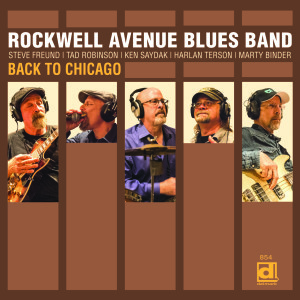
Back to Chicago
Delmark Records – DE 854
Steve Freund, Tad Robinson, Ken Saydak, Marty Binder and Harlan Terson reunite to make music in the town where they became friends while serving their various apprenticeships in local blues bands (Sunnyland Slim, Mighty Joe Young, Otis Rush, Lonnie Brooks, Albert Collins and others) back in the 1970s, ’80s and ’90s. The title, Back to Chicago, refers primarily to the band members’ pilgrimage, and not necessarily a return to the music of Chicago. There are influences here of their individual journeys, and certainly Chicago plays a large part. Saydak brings a Tex-Mex touch to some of his numbers; Freund, a Brooklyn tension melded with Chicago blues and West Coast eclecticism; Robinson, a soulfulness plucked out of the anywhere airwaves of decades past. And Marty Binder and Harlan Terson are the bedrock-solid Chicago guys who never left (except to tour, of course). This is tight ensemble playing, and award-winning producer Dick Shurman’s steady hand ensures that everybody is in balance and heard (bass seems an occasional casualty in Delmark productions).
Saydak’s songwriting is clever, quirky and topical: he alludes to gun control (For a Reason), cheating death (Chariot Gate) and simple humility (Dream). Robinson’s lyrics go for the soul, and his old-school balladry is lovely and lush throughout, exemplified by Rich Man and his Syl Johnson evocation on Back to Chicago. Freund contributes four titles, the best of which, perhaps, is Lonesome Flight, a solid Chicago blues about the death of his father. Even Terson contributes with Love Police, a fine comic number about married life sung by Saydak (we hope that the relative newlywed Terson will not be in hot water over this one).
Other standouts include their take on Elmore James’ Stranger Blues with stop time call-and-response between Freund’s chord riffs and Marty Binder’s thrilling and exacting drum rolls, and We Believe, a stirring and straightforward proclamation of faith, bereft of embellishments or disingenuousness. And of course the music throughout is squeaky clean, well practiced, technically faultless and eminently airworthy.
Saydak’s liner notes affectionately refer to himself and the band as “Americans” whose “sensibilities were wide open” in their early initiation to blues. “Rock ’n’ Roll,” he states, “had invited African-American culture into America’s largely white living room, and these guys greeted it with open arms at the front door.” That is as good a description this reviewer has read of a group of peers from one culture embracing the music culture of another.
—Justin O’Brien
THE SUFFERS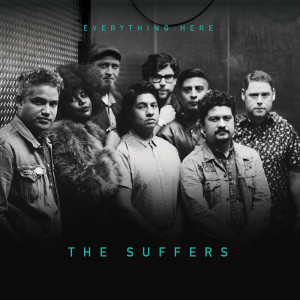
Everything Here
Shanachie – SH6305
The Suffers could be defined in at least a couple of ways. For starters, they’re a terrific R&B band whose penchant for horns and a smooth groove establish them as the real deal, especially as far as their authentic soul sound is concerned. For another, they’re a band of vintage variety, a group whose delivery—aside from an occasional flirtation with rap and hip-hop—finds them retracing the seminal sounds of the ’70s and ’80s, a time when disco had passed its prime and the mainstream ensembles (the Temptations, the Stylistics, Harold Melvin & the Blue Notes, et al.) were ready to retrace their roots and get back to basics.
As a result, the aptly titled Everything Here is an album that fans of classic rhythm and blues can immediately appreciate. Several of the songs—I Think I Love You, What You Said, Do Whatever and Sure to Remain, in particular—offer funk without frenzy, relying mostly on a smooth groove to make an initial impression. With singer Kam Franklin’s emotive vocals at the helm of the eight-piece outfit, the music is uncommonly expressive, fully sensual and devoid of pretense. Franklin doesn’t make herself out to be a diva by any means and, indeed, when she sings she comes across with more poise than posture. Over the course of its 15 tracks, the band is solidly in sync, with a rock-solid rhythm providing the pulse while the brass section provides all the flourish needed.
There are times, of course, when the Suffers’ adherence to a traditional tack does find them retracing certain seminal sounds. Bernard’s Interlude, featuring guest Bun B, sounds like Barry White reborn, courtesy of Bun’s deep, melodious croon. The reggae rhythms that propel the title tune allude to the fact that the band originally borrowed its name from a prime piece of Jamaican cinema, the classic 1978 film Rockers, which featured reggae greats Jacob Miller and Burning Spear among its cast of participants.
Ultimately, though, comparisons are unnecessary. The Suffers make music with universal appeal, a comforting approach flush with songs that immediately sound like they’re standards. In the end, Everything Here is true soul at its emotive best—riveting, resourceful and resolute.
—Lee Zimmerman
KATHY & THE KILOWATTS
Premonition of Love
Nola Blue Records – NBj005
Kathy & the Kilowatts are the kind of band that likely kills it in concert. At least that’s the impression they offer on their fourth CD, the intriguingly titled Premonition of Love. Flush with both frenzy and finesse, it provides grit and a groove. Kathy and company have an inherent feel for authenticity, and though this Austin-based band make it all seem effortless, they can’t be confined to one specific genre, even though they’re clearly rooted in the blues. The music makes their main intent clear—to connect with their audience and put the essential emotion across.
That ability is drawn from experience. Singer Kathy Murray played a pivotal role in the Texas blues music scene throughout the ’80s and ’90s, sharing stages with the Fabulous Thunderbirds, Stevie Ray Vaughan, Marcia Ball, Albert Collins, Albert King, Koko Taylor and Lou Ann Barton, to name a few. If she hasn’t achieved the ready recognition of those aforementioned contemporaries, the new album suggests that appreciation ought not be long in coming. Kathy’s confidence is never in doubt, whether reflected in the blustery swagger of Beggars Can’t Be Choosers, the surge and sass that drives Always Fooling Me, the insistent shuffle of the ever effusive Grow Some or the relentlessly rollicking Sugar Bee, the latter one of four covers included in this 13-song set.
Even when the band slows the pace and digs deep into the searing soul of Lowell Fulson’s classic Black Nights, they show how well suited they are to purveying a stoic sound that resonates with power and finesse. The Bo Diddley beat of Answer Yes and the solid strut of Final Verdict also attest to their verve and versatility.
It’s evident then that the original premise rings true. Translating the electricity of live performance to a studio situation is no easy task, but Kathy & the Kilowatts lose nothing in the translation. The electricity is, as their handle implies, fully charged from their initial impulse.
—Lee Zimmerman


